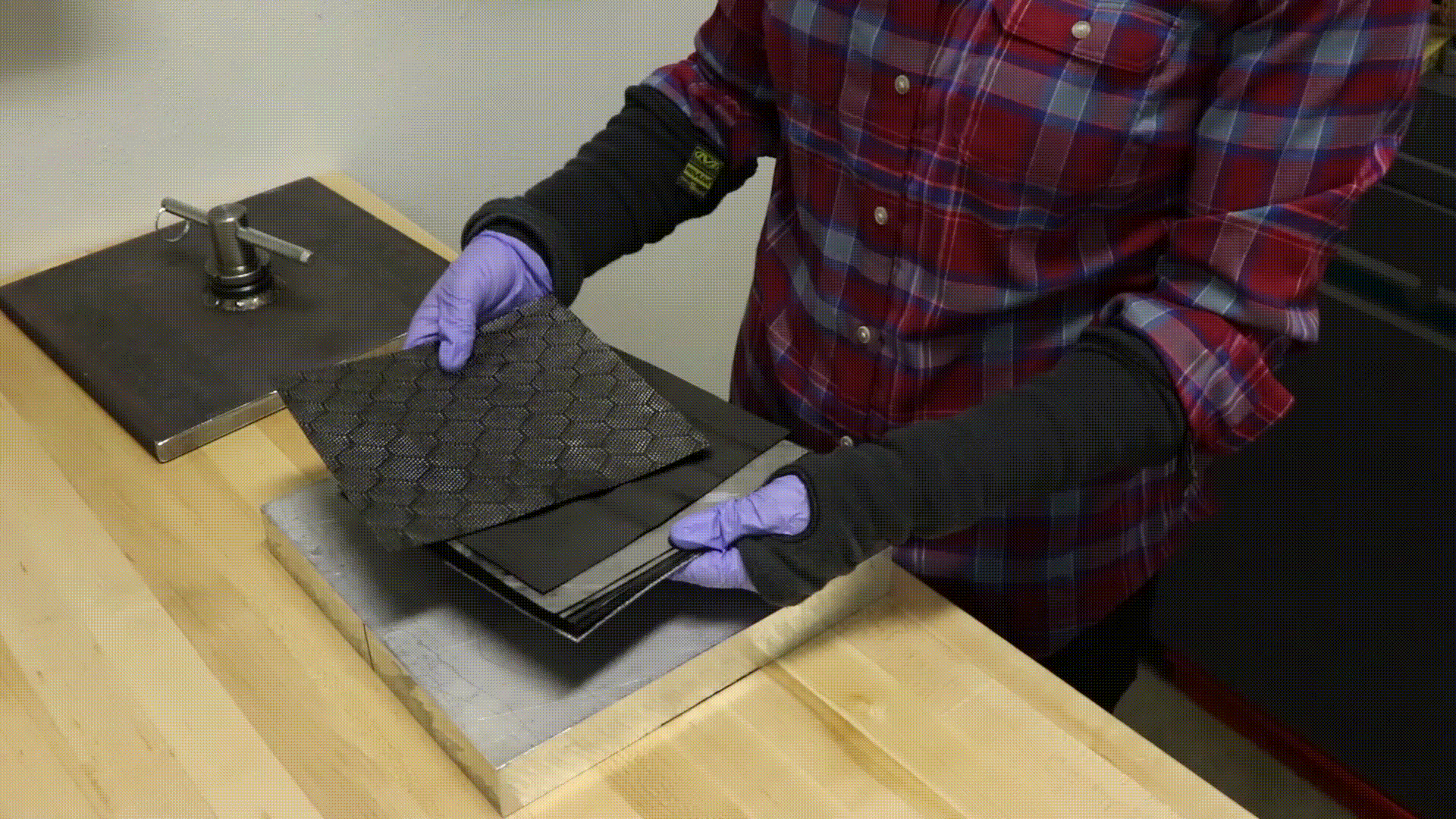Form the Future
Mallinda is a supplier and developer of polyimine-based Vitrimer resins known as VITRIMAX™. VITRIMAX™ represents a new platform chemistry based on dynamically exchangeable imine-linked polymer networks. Like traditional thermosets, VITRIMAX™ is a robust highly crosslinked network polymer. Unlike legacy thermosets, the VITRIMAX™ platform yields a product that can be remolded, but only when heated above the glass transition (Tg). Upon cooling, internal stresses are relaxed away, and the materials retain thermoset-like mechanical performance. The reversible nature of VITRIMAX™ enables covalent welding, molding, reshaping, solution-based and solid state, closed-loop recycling of fully cured materials. VITRIMAX™ chemistry is highly tunable to meet the specific thermomechanical requirements across industry segments.
A Drop-In Technology
- VITRIMAX T100™ offers competitive mechanicals as well as end-user customizability at temperatures ≥ 100°C
- VITRIMAX T130™ is competitive with today’s industrial epoxy-based thermoset resins that have a glass transition temperature of 130°C.
- Both systems are 2-part hot melt ready resins ready for various existing prepregging processes.
Customizable Options
- VITRIMAX™ can be formulated to have a range of vitrimer transition (AKA Tg) temperatures, processing viscosities, and mechanical properties.
- The vitrimer transition, or Tg, can be programmed from 20°C-240°C, formulated elastomeric to crystalline, and Mallinda offers customized development in strength, toughness, adhesion, resistance, and more.
- Get the perfect resin for your application.
Chemical Recycling of End-of-Life Products
Mallinda has developed a completely closed loop system for the recovery and reuse of fiber and resin from fiber reinforced composites. Our patented recycling process is energy efficient; taking advantage of the reversible chemistry of VITRIMAX™, generating no excess waste. Both the recovered carbon fiber and the recovered resin can be reused to make fresh composite materials. VITRIMAX™-based materials may be recycled many times over.
Key Advantage: Reduce your CO2 footprint and be truly sustainable.
Mechanical Reuse of Scrap and End-of-Life Products
VITRIMAX™ resin chemistry stays active, even after cure so all scrap can be used for discontinuous composite part production, enabling 100% material utilization to form high-performance parts. Resin alone, or VITRIMAX™ -matrix composites can be mechanically processed and reformed into high-performance second-generation materials using heat and pressure, yielding no loss in mechanical performance, unlike traditional thermoplastics.
Key Advantage: Eliminate composite waste.
Rapid Pre-Cured Thermoset Compression Forming
Despite clear logistical advantages – no legacy thermosetting resin can be pre-cured for shelf-stability. Due to the active covalent bonding in VITRIMAX™ chemistry, compression forming of pre-cured materials can take as little as 20 seconds to form high-performance, well-consolidated parts. Precured prepreg sheet stock have no requirement for refrigerated storage and transport, nor any hazardous handling or shipping constraints/costs. Precured VITRIMAX™-based materials are indefinitely shelf stable under ambient conditions and can be processed much like thermoplastics; saving refrigeration costs and reducing carbon footprint.
Key Advantage: Improved Logistics

End-User Reformability for Custom-Fitted Gear
VIRTIMAX T100™ composite materials can be reshaped at 100°C, and have been optimized for home use, for end user customizability. Athletes can infinitely adjust the fit or geometry of VITRIMAX™-enabled sports gear in boiling water until they get the perfect shape or fit.
Key Advantage: Eliminate the need for custom tooling and enhance customer satisfaction with the perfect fit.

